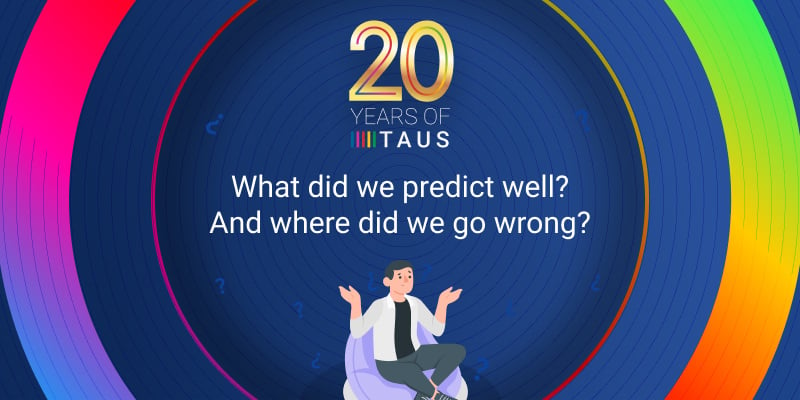Rage Against the Machine [Translation]
28/04/2016

While the average consumer only giggles when coming across weirdly translated phrases in Google Translate, some translators seem to be raging in anger.
Author

Dace is a product and operations management professional with 15+ years of experience in the localization industry. Over the past 7 years, she has taken on various roles at TAUS ranging from account management to product and operations management. Since 2020 she is a member of the Executive Team and leads the strategic planning and business operations of a team of 20+ employees. She holds a Bachelor’s degree in Translation and Interpreting and a Master’s degree in Social and Cultural Anthropology.
Related Articles
03/06/2025
Discover how AI and innovation are transforming the localization industry and challenging traditional methods.
21/11/2024
Celebrating the 20th anniversary of TAUS this month caused the team to look back at the predictions and outcomes so far. What have we achieved? What went wrong?
 by Dace Dzeguze
by Dace Dzeguze27/11/2023
Explore the fascinating journey of Lisa Vasileva, a Machine Learning Engineer at TAUS, as she transitions from a professional translator to the field of Natural Language Processing (NLP).



